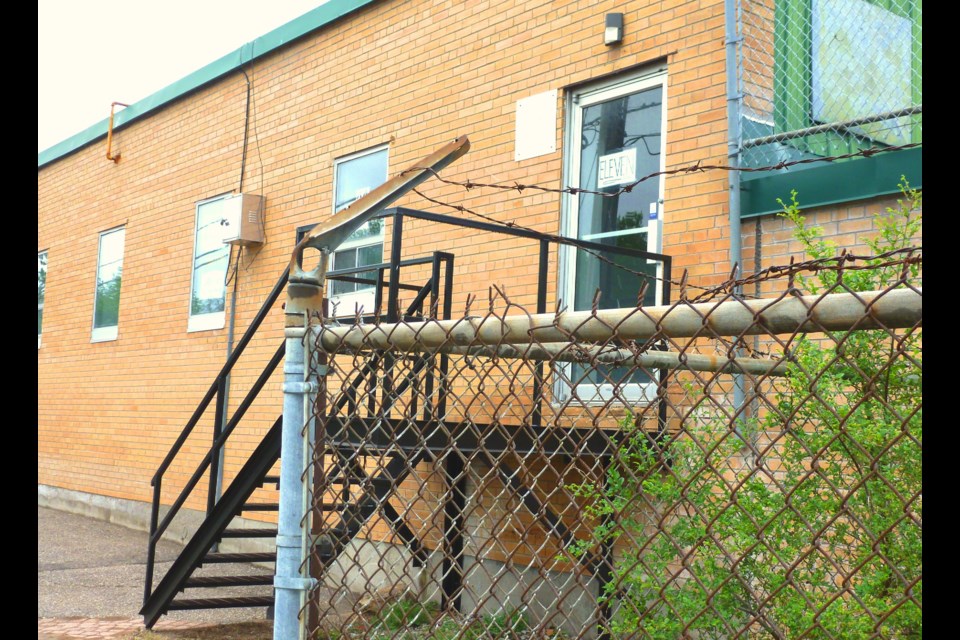While the phrase “no news is good news” may apply in some situations, the lack of an definitive response from the province's Ministry of Health has left those who support the creation of a supervised consumption site (SCS) near downtown Barrie frustrated.
Meredith Fryia, manager of addiction services with the Canadian Mental Health Association (CMHA) Simcoe County Branch, says they have not heard anything from the ministry about the status of their provincial application, including confirmation of funding, which was submitted to the province in October 2021.
“We have had lots of back and forth between the ministry and ourselves … to provide them with more information and some clarity and answer any questions they may have about our application,” Fryia told BarrieToday. “Now we are just waiting on their decision.
"The last contact was when we received our Health Canada exemption in September," she said. "... We let them know we had received the exemption so they were aware, but we are still in the pattern of waiting at this point.”
As the lead applicant on the proposal, the CMHA’s Simcoe County Branch announced in September that it had received approval from Health Canada for an exemption to allow the use of illegal drugs at the proposed Consumption and Treatment Services (CTS) site at 11 Innisfil St., located at the back of 80 Bradford St., near the former Red Storey Field.
The facility is referred to as both an SCS and CTS as the terms are interchangeable. An SCS/CTS provides a safe space and sterile equipment for individuals to use pre-obtained drugs under the supervision of health-care staff. Consumption means taking opioids and other drugs by injection, smoking, snorting or orally.
A Controlled Drugs and Substances Act (CDSA) exemption, meanwhile, allows staff at the facility the ability to test and handle drugs without any criminal sanctions.
Fryia told BarrieToday they are anxious to get the SCS up and running. And although they knew the process would be an arduous one, they didn’t anticipate it would take quite this long.
“We did know it would be a lengthy process, because we’d been in touch with other sites across the province just to get their experiences, but I don’t think we anticipated it would be this long,” she said. “Obviously, we’d like to get this project off the ground and to get moving forward on it. It is a resource that’s urgently needed for our community, so we are really hoping to hear as soon as we can.
"We definitely want to hear back and we are hopeful that will occur soon, but we don’t have any information as to what that timeline will be.”
The local community has been — and continues to be — significantly impacted by the opioid crisis, Fryia noted, adding there are a number of people in the city that could benefit from a program like this. An SCS, she added, serves as one component of an overall strategy to address the opioid crisis.
“It’s by no means a standalone. It’s one element in conjunction with the treatments we provide, with other supports and services in the community, but it’s another support we feel would be beneficial to a certain segment of the population,” she said. “I think it’s important we have all the options available for people.”
The rate of opioid-related deaths in January, February and March of this year shows Simcoe-Muskoka above the provincial average, and among the worst regions in Ontario, behind only Toronto, Peel Region and Hamilton, according to the latest data from the Office of the Chief Coroner. According to preliminary data from the Simcoe Muskoka District Health Unit, there were 33 confirmed and probable opioid-related deaths in the region in the first three months of 2022.
Keenan Aylwin, a former Barrie city councillor who has long supported an SCS in the downtown ward, called the lack of response from the government a “disgrace.”
“Hundreds of people in our community have died over the last few years from toxic drug poisoning and those deaths are preventable. We know that a supervised consumption site could help prevent deaths,” he said. “In my opinion, our provincial government, our local MPPs, the Ministry of Health of Ontario … have blood on their hands.
"It’s unacceptable that they’ve taken this long to approve a life-saving service that is backed by evidence, that would help people immediately in their community be more safe," Aylwin added.
Individuals who use drugs deserve to live a life of dignity and safety, said the ex-councillor.
“A supervised consumption site would be a step on the path to providing that to people,” said Aylwin, adding he’s unfortunately not surprised by how long the process has taken. “The government has been dragging their heels on this application. They should have to look into the eyes of families who have lost loved ones in our community and justify their lack of action on approving a life-saving supervised consumption site.”
The CMHA says the proposed site will provide "a safe, hygienic location where people can use illicit substances with the supervision of trained staff, reducing health risks such as overdose and infections. It will also connect people who use drugs to other health and social services that they may want but have difficulty accessing, including mental health and addictions treatment, primary care, and housing."
From March 2020 to March 2022, the health unit reported 323 opioid-related deaths in Simcoe-Muskoka, which is more than 75 per cent higher than the 182 opioid-related deaths in the 25 months prior to the start of the pandemic, from February 2018 to February 2020.



